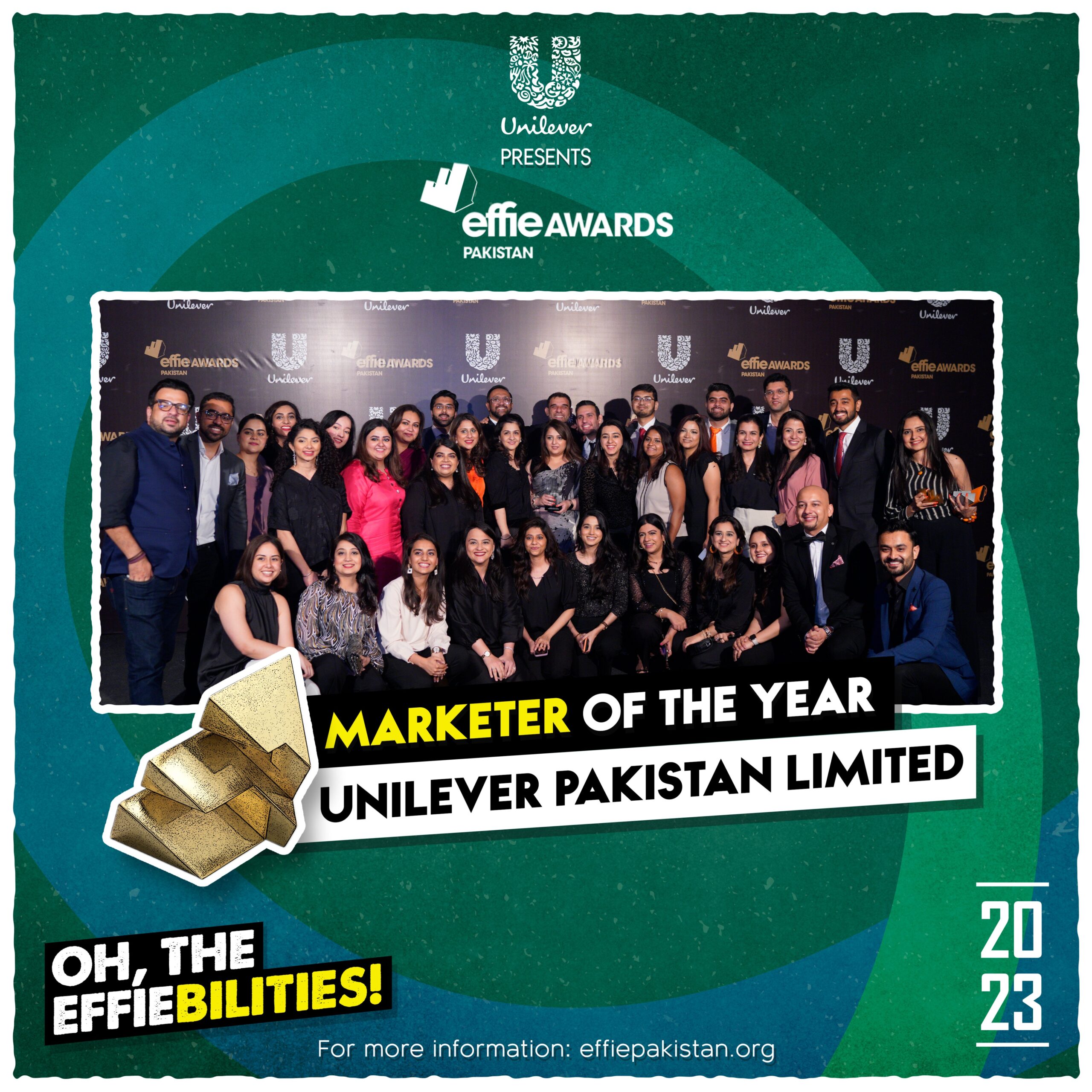
Is it justified? Unilever won Marketer of the Year award at Effies 2023

In the bustling city of Karachi, the news spread like wildfire. Unilever Pakistan had clinched the most prestigious Effie; Marketer of the Year Award. It was an honor coveted by many, a recognition that represented the pinnacle of advertising success. The company triumphed, outshining its competitors with a series of campaigns that promised to leave a lasting impact on the masses.
However, as the accolades rained down upon Unilever, a storm of discontent began to brew. Whispers of skepticism filled the air, growing louder with each passing day. Critics emerged, questioning the legitimacy of Unilever’s victory, and their skepticism found a humorous voice in the satirical columnist Ad Mad.
Unilever, the esteemed sponsor of the Effie Awards, has conveniently bestowed upon itself the prestigious title of Best Marketer of the Year. In an unsurprising turn of events, Unilever’s self-proclaimed triumph reeks of bias and self-aggrandizement. By presenting the award to themselves, they have created an atmosphere of dubious credibility, raising questions about the authenticity and integrity of the entire award ceremony.
Known for his witty and incisive commentary on the world of advertising, Ad Mad couldn’t resist poking fun at Unilever’s triumph. In his typical tongue-in-cheek style, he coined the term “Lullifever” to mock the company’s dominance, suggesting that their campaigns were so obscure that the masses remained blissfully unaware of their existence.
As Ad Mad Dude’s words gained traction, social media platforms erupted with laughter and criticism. Memes and jokes flooded timelines, with people playfully insinuating that Unilever had bought their way to victory, sarcastically questioning how money could guarantee success.

Unilever, meanwhile, remained stoic in the face of the backlash. They knew that great achievements often attracted their fair share of detractors. While the world laughed, they focused on the passion and creativity that had propelled them to the top. They took solace in the knowledge that their campaigns had resonated with the target audience, regardless of public opinion.
Time would tell whether Unilever’s triumph would stand the test of time or become a footnote in the annals of advertising history. For now, the laughter continued, as the company basked in both the glory and the ridicule that accompanied their victory. And perhaps, amidst the humor and mockery, Unilever had unknowingly sparked a debate about the nature of success in the world of marketing, igniting a fire that would burn long after the laughter faded away.







